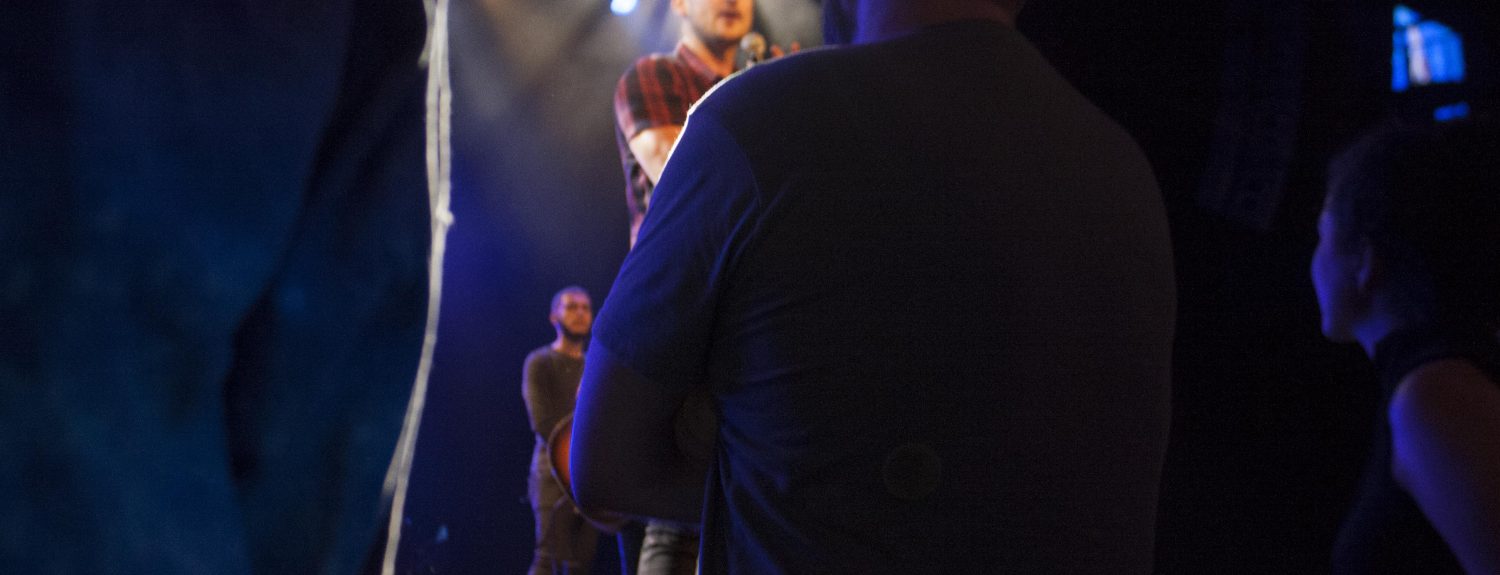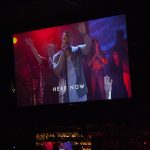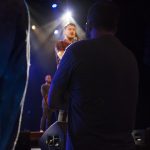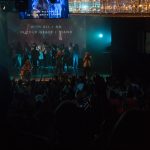Lifestyle & Culture
How One Church Draws Younger Parishioners
By Sophia Segarra
Spectrum staff
By several measures, Hillsong church is atypical.
There’s a band—playing Christian music infused with country, rock and other genres—instead of hymnals and a robed choir. Ripped up jeans, Converse, and crop tops are permitted here. Instead of a pulpit, there’s a stage lit in multi-colored beams.
“I feel like other churches that I’ve been to have just been [super] condemning,” said 19-year-old Jesam Usani, one summer Sunday after worship inside Time Square’s PlayStation Theater, one of two New York City locations where Sydney, Australia-headquartered Hillsong holds worship services.
She continued: “‘You can’t dress this way, you can’t act this way.’ And [it’s] funny, because the people who are condemning you are doing the exact opposite of what they’re saying.”
Earlier in the week, after a Wednesday evening Hillsong service at Gustavus Adolphus Lutheran Church in Gramercy Park, Joce Hee made a similar comment: “There’s an openness … [a] ‘come as you are’ … That’s why so many people feel comfortable and free to keep on coming and showing up. You feel accepted.”
The preachers and lay leaders of Hillsong want to make people—especially young ones, who, studies found, are not as religious as their parents—feel accepted and get them into the building and into other church programs.
None of the pastors or volunteer church leaders that this reporter approached would answer questions about how Hillsong’s draws teens and young adults. But on the church’s website, the Rev. Brian Houston, Hillsong’s founder and global pastor, said his ministry aims to be “loving in nature and inclusive in expression.”
During that recent Wednesday service, the Rev. Kane Keatinge—wearing a sleeveless shirt with a skull-and-bones logo and “Baddies” imprint—asked people aged 34 and under to raise their hands. Hands shot up. Keatinge was saluting a couple that had been married for 34 years, and preaching a sermon on marriage and family.
Pew Research Center’s Fact Tank reported in April 2016 that 25 percent of U.S. millennials—those whom Pew researchers say were born from 1980 onward—call themselves atheist, agnostic or otherwise non-religious. By comparison, 11 percent of baby boomers—those born between 1946 and 1964—fit into one of those three categories.
Also, 36 percent of 18-to-24-year-olds, according to Pew’s 2014 Religious Landscape Study, have no religious affiliation.
Hillsong member Usani, a preacher’s kid who lives in the Bronx, said she traded the church where she grew up and where her father is the pastor for Hillsong after she graduated high school.
“What actually kept me and attracted me to it was the amount of young people,” the 19-year-old said. “Every other church that I’ve been to has just emphasized, like, you’re Christian on Sunday. The thing about Hillsong is that there’s always something going on during the week. There’s always somebody keeping you accountable … [It’s] not that easy to fall through the cracks.”
“It’s come as you are… ‘You got to be perfect to come to this church?’ No,” said Obed Palao, 23, a Bronx resident who joined Hillsong four years ago. “Just be yourself.”






